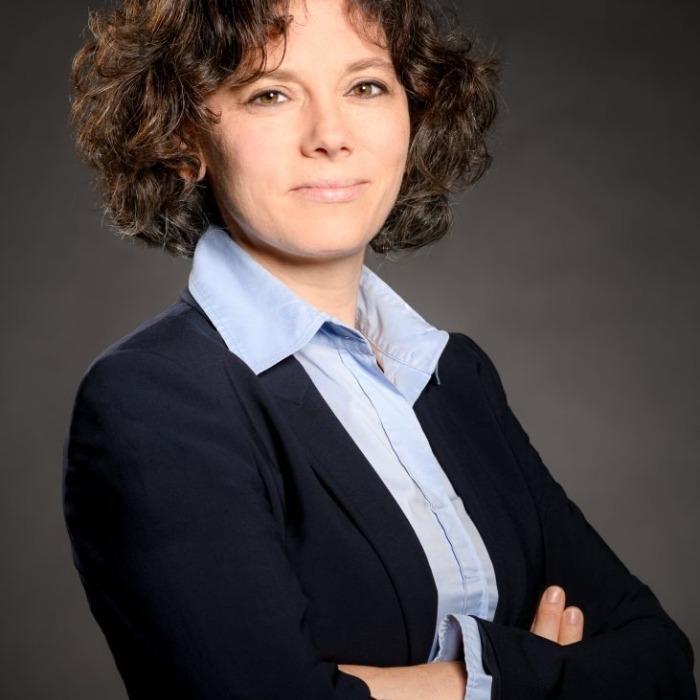
Siwan Anderson
Professor, University of British Columbia
Marriage, Commitment and Unbundling Gendered Norms
Date and Time:
Tuesday, November 10, 2020 12:15 PM
Virtual
Co-Sponsor:
Department of Economics
The Batten School

Rachel Brule
Assistant Professor, Boston University
Women, Power, and Property: The Paradox of Gender Equality Laws in India
Date and Time:
Wednesday, November 11, 2020 12:15 PM
Virtual
Co-Sponsor:
Department of Economics
The Batten School
Abstract/Description:
Quotas for women in government have swept the globe. Yet we know little about their capacity to upend entrenched social, political, and economic hierarchies. Women, Power, and Property explores this question within the context of India, the world’s largest democracy. Brulé employs a research design that maximizes causal inference alongside extensive field research to explain the relationship between political representation, backlash, and economic empowerment. Her findings show that women in government – gatekeepers – catalyze access to fundamental economic rights to property. Women in politics have the power to support constituent rights at critical junctures, such as marriage negotiations, when they can strike integrative solutions to intrahousehold bargaining. Yet there is a paradox: quotas are essential for enforcement of rights, but they generate backlash against women who gain rights without bargaining leverage. In this groundbreaking study, Brulé shows how well-designed quotas can operate as a crucial tool to foster equality and benefit the women they are meant to empower.

Avidit Acharya
Associate Professor, Stanford University
Building Trust in Government: The Opportunities and Challenges of Adverse Shocks
Date and Time:
Wednesday, January 27, 2021 12:15 PM
Virtual
Co-Sponsor:
Department of Economics
The Batten School
Abstract/Description:
There is considerable variation in the extent to which citizens around the world trust their governments to uphold private property rights. At one extreme are countries like Venezuela under the Chavez and Maduro regimes, where the government expropriated hundreds of private enterprises across industries. At the other end are countries like the United States and those of Western Europe, where governments have maintained the trust of their citizens in preserving and honoring institutions that protect private assets, investments and income.
This paper analyzes how adverse shocks that align the interests of state and society shape a government’s ability to build the trust of its citizens. These shocks could arise from foreign threats, financial crises, and natural calamities. When shocks are frequent and severe, government can have the incentive to be trustworthy, since it requires cooperation from its citizens to avert these challenges. But if the shocks are not severe, increasing their frequency can reduce the scope for cooperation between state and society.
In addition, we look at the case where the public cannot tell whether or not a shock has hit (the case of imperfect monitoring). In this case, the government’s challenge of building a reputation for being trustworthy is complicated by the fact that if it tries to raise revenue to avert a real crisis, citizens lose some trust in government as they suspect that it may have collected from them opportunistically. This happens despite the fact that the interests of state and society are aligned during these crises. We show here that the opportunity to build a reputation for trustworthiness can enhance the government’s payoff beyond what is achievable in the case where citizens know that the government is playing strategically.

Francis Annan
Assistant Professor, Georgia State University
Misconduct and Reputation under Imperfect Information
Date and Time:
Tuesday, December 8, 2020 12:15 PM
Co-Sponsor:
Department of Economics
The Batten School

Prashant Bhardwaj
Professor, University of California San Diego
In Utero Exposure to Industrial Disasters: A Case Study of the Bhopal Gas Tragedy
Date and Time:
Tuesday, September 15, 2020 12:15 PM
Virtual
Co-Sponsor:
Department of Economics
The Batten School

Ken Opalo
Assistant Professor, Georgetown University
The Cyclical Electoral Impacts of Programmatic Policies: Evidence From Education Reforms in Tanzania
Date and Time:
Wednesday, October 7, 2020 12:15 PM
Virtual
Co-Sponsor:
Department of Economics
The Batten School

Imran Rasul
University College London
How Do Workers and Firms Search and Match in Low-income Labour Markets? Evidence from a Six-Year Labor Market Experiment in Uganda
Date and Time:
Tuesday, September 29, 2020 12:15 PM
Co-Sponsor:
Department of Economics
The Batten School

Ray Fisman
Slater Family Professor in Behavioral Economics, Boston University
Investing in influence: Investors, portfolio firms, and political giving
Date and Time:
Tuesday, January 26, 2021 12:15 PM
Virtual
Abstract/Description:
Campaign finance laws aim to limit an individual’s influence over the political process.We show that corporate ownership may be an important mechanism by which institutional investors circumvent such constraints and amplify their influence. Using data on the political giving and ownership of all 13-F investors between 1980 and 2016, we show that the probability that a firm’s Political Action Committee (PAC) donates to a politician supported by an investor’s PAC nearly doubles after the investor acquires a large stake, and that it in-creases five-fold when the investor obtains a board seat. This increase in similarity of political giving coincides with the election cycle the acquisition takes place in, and is not driven by selection into specific politically strategic acquisitions, as convergence in political behavior is observed even for exogenously determined acquisitions caused by stock index inclusions. The relationship is stronger for private funds, and those with high partisanship, suggesting the relationship is driven by investor preferences rather than strategic concerns. Finally, we show that portfolio firms’ PAC expenditure experiences a relatively large shift at the acquisition date relative to past giving, whereas no such pattern is observed for institutional investors.We argue that these findings are best explained by investors influencing portfolio firm giving,suggesting that PAC giving may be another means by which influential shareholders impact corporate decision-making, in a manner that amplifies investors’ political voice.
Seema Jayachandran
Professor of Economics, Northwestern University
Upcoming Talk by
Date and Time:
Tuesday, February 9, 2021 12:15 PM
Virtual

Teresa Molina
Assistant Professor, University of Hawaii
Upcoming Talk by
Date and Time:
Tuesday, February 23, 2021 12:15 PM
Virtual

Aprajit Mahajan
Associate Professor, University of California, Berkeley
Expanding Financial Access Via Credit Cards: Evidence from Mexico
Date and Time:
Tuesday, March 16, 2021 12:15 PM
Virtual
Abstract/Description:
Credit card debt is increasingly common among poor and inexperienced borrowers – thus de facto a financial inclusion product. However, it remains relatively under-studied. We use detailed card-level data and a product that accounted for 15% of all first-time formal loans in Mexico and show that default rates are high and ex-ante unpredictable for new borrowers – suggesting an important role for ex-post contract terms in limiting risk. However, using a large nation-wide experiment we find that default is unresponsive to minimum payment increases, a commonly proposed policy remedy. We provide evidence that the zero result is driven by the offsetting effects of tightened liquidity constraints and lower debt burdens. Surprisingly, we also find muted default responses to large experimental changes in interest rates – suggesting a limited role for ex-post moral hazard in our context. Finally, we use job displacements to document large effects of unemployment on default, highlighting the centrality of idiosyncratic shocks as a barrier to the expansion of formal credit among poorer populations.

Shaoda Wang
Assistant Professor, Harris School of Public Policy, University of Chicago
Citizen Participation and Government Accountability: National-Scale Experimental Evidence from Pollution Appeals in China
Date and Time:
Tuesday, April 13, 2021 12:15 PM
Virtual
2020-2021 overall text
Academic Year:
